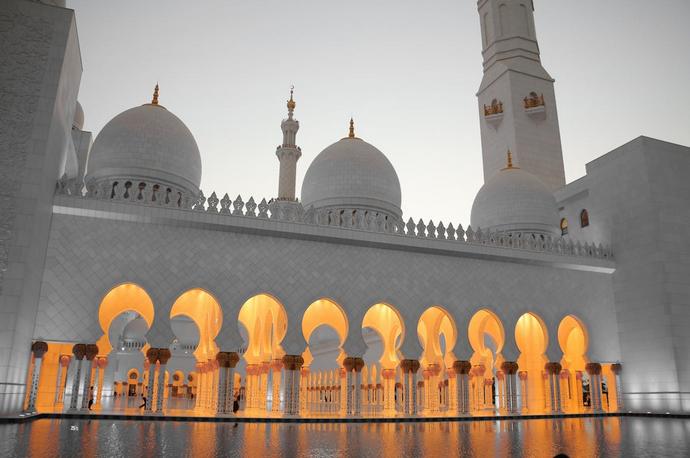ശുക്ർ എന്ന ആത്മീയ ശക്തി

ഇസ്ലാമിലെ കൃതജ്ഞത: ശുക്ർ എന്ന ആത്മീയ ശക്തി
മനുഷ്യജീവിതത്തിന്റെ ആഴത്തിലുള്ള രഹസ്യങ്ങളിൽ ഒന്നാണ് കൃതജ്ഞത. ഇസ്ലാമിൽ ഇത് ഒരു നല്ല സ്വഭാവം മാത്രമല്ല; മറിച്ച്, ഇമാനിന്റെ ഒരു അടയാളം കൂടിയാണ്. ഖുര്ആനും സുന്നത്തും മനുഷ്യനെ നിരന്തരം പഠിപ്പിക്കുന്ന ഒരു ആത്മീയ അവസ്ഥയാണ് ശുക്ർ — അല്ലാഹു നൽകിയ അനുഗ്രഹങ്ങളെ തിരിച്ചറിയുകയും, അവയ്ക്ക് നന്ദി പ്രകടിപ്പിക്കുകയും, ആ നന്ദിയെ ജീവിതത്തിലൂടെ പ്രകടമാക്കുകയും ചെയ്യുക.
ഇസ്ലാം മനുഷ്യനോട് ചോദിക്കുന്ന ഒരു അടിസ്ഥാന ചോദ്യമുണ്ട്:
നിനക്ക് ലഭിച്ച ഈ അനുഗ്രഹങ്ങളെ നീ എങ്ങനെ കാണുന്നു?
അതിന്റെ ഉത്തരം ശുക്ർ ആണെങ്കിൽ, മനുഷ്യന്റെ ജീവിതം തന്നെ മാറിത്തുടങ്ങും.
“നിങ്ങൾ നന്ദി കാണിച്ചാൽ ഞാൻ നിങ്ങളെ കൂടുതൽ അനുഗ്രഹിക്കും.”
(സൂറത്ത് ഇബ്രാഹീം 14:7)
ഈ വചനത്തിൽ തന്നെ കൃതജ്ഞതയുടെ ആത്മീയ രഹസ്യം ഒളിഞ്ഞിരിക്കുന്നു — നന്ദി പറഞ്ഞാൽ അനുഗ്രഹങ്ങൾ വർധിക്കും.
ശുക്ർ: ഒരു വാക്കല്ല, ഒരു ആത്മാവസ്ഥ
ശുക്ർ എന്ന പദത്തിന്റെ അർത്ഥം
അറബിക് ഭാഷയിൽ ശുക്ർ എന്നത് വെറും “നന്ദി പറയുക” എന്നതിലപ്പുറം അർത്ഥമാക്കുന്നു. ലഭിച്ച അനുഗ്രഹത്തെ അംഗീകരിക്കുക, അത് നൽകിയവനെ സ്നേഹത്തോടെ സ്മരിക്കുക, ആ അനുഗ്രഹം ശരിയായ വഴിയിൽ ഉപയോഗിക്കുക — ഇതെല്ലാം ചേർന്നതാണ് ശുക്ർ.
ഇസ്ലാമിക പണ്ഡിതന്മാർ പറയുന്നത്, ശുക്ർ മൂന്നു തലങ്ങളിലാണെന്ന്:
- ഹൃദയത്തിലൂടെ ശുക്ർ – അനുഗ്രഹം അല്ലാഹുവിൽ നിന്നാണെന്ന് തിരിച്ചറിയൽ
- നാവിലൂടെ ശുക്ർ – അല്ലാഹുവിനെ സ്തുതിക്കുകയും നന്ദി പറയുകയും ചെയ്യുക
- പ്രവൃത്തികളിലൂടെ ശുക്ർ – അനുഗ്രഹങ്ങളെ പുണ്യത്തിലേക്ക് ഉപയോഗിക്കുക
ഈ മൂന്നു ഒന്നിച്ചുകൂടുമ്പോഴാണ് യഥാർത്ഥ കൃതജ്ഞത പൂർണമാകുന്നത്.
ഖുര്ആനിലെ കൃതജ്ഞതയുടെ കേന്ദ്രസ്ഥാനം
ഖുര്ആൻ നന്ദിയെ മനുഷ്യന്റെ കടമയാക്കി
ഖുര്ആൻ പല സ്ഥലങ്ങളിലും മനുഷ്യനെ കൃതജ്ഞനാകാൻ ഓർമ്മിപ്പിക്കുന്നു. കാരണം, മനുഷ്യൻ സ്വഭാവത്തിൽ മറക്കുന്നവനാണ്. ലഭിച്ച അനുഗ്രഹങ്ങൾ സാധാരണമെന്ന പോലെ കാണുന്നവനാണ്.
“അല്ലാഹു നിങ്ങളെ മാതാക്കളുടെ ഗർഭങ്ങളിൽ നിന്ന് അറിവില്ലാതെ പുറത്തെടുത്തു; നിങ്ങൾ നന്ദി കാണിക്കുവാൻ വേണ്ടി അവൻ നിങ്ങള്ക്ക് ചെവിയും കണ്ണുകളും ഹൃദയങ്ങളും നൽകി.”
(സൂറത്ത് അൻ-നഹ്ൽ 16:78)
ഈ വചനം മനുഷ്യന്റെ ജീവിതം തന്നെ ഒരു അനുഗ്രഹമാണെന്ന് ഓർമ്മിപ്പിക്കുന്നു. ശ്വാസം മുതൽ ചിന്ത വരെ — എല്ലാം ദൈവിക ദാനങ്ങളാണ്.
നന്ദിയില്ലായ്മ ഒരു ആത്മീയ അന്ധത
ഖുര്ആൻ നന്ദിയില്ലായ്മയെ വെറും അശിഷ്ടതയായി കാണുന്നില്ല. അത് ആത്മീയ അന്ധതയായി ചിത്രീകരിക്കുന്നു.
“എന്റെ ദാസന്മാരിൽ വളരെ കുറച്ചുപേരാണ് നന്ദിയുള്ളവർ.”
(സൂറത്ത് സബഅ് 34:13)
ഈ വചനത്തിൽ ഒരു വേദനയുണ്ട് — അല്ലാഹു നൽകിയ എണ്ണമറ്റ അനുഗ്രഹങ്ങൾക്കിടയിലും നന്ദി പറയുന്നവർ വളരെ കുറവാണ്.
ശുക്ർ മനുഷ്യന്റെ ഇമാനുമായി എങ്ങനെ ബന്ധപ്പെടുന്നു
നന്ദിയും വിശ്വാസവും തമ്മിലുള്ള ആഴത്തിലുള്ള ബന്ധം
ഇസ്ലാമിൽ ശുക്ർ ഇമാനിന്റെ ശക്തമായ അടയാളമാണ്. നന്ദിയുള്ള ഹൃദയം, ദൈവിക വിധികളെ എളുപ്പത്തിൽ സ്വീകരിക്കും. കാരണം, അത് എല്ലാറ്റിനും പിന്നിൽ അല്ലാഹുവിന്റെ ഹിക്മത്തുണ്ടെന്ന് വിശ്വസിക്കുന്നു.
“നിങ്ങൾ അല്ലാഹുവിൽ വിശ്വസിക്കുകയും നന്ദി കാണിക്കുകയും ചെയ്താൽ അവൻ നിങ്ങളെ ശിക്ഷിച്ച് എന്ത് ചെയ്യും?”
(സൂറത്ത് അൻ-നിസാ 4:147)
ഈ വചനം വ്യക്തമാക്കുന്നു: നന്ദിയും ഇമാനും ഒരുമിച്ചാൽ, അല്ലാഹുവിന്റെ കോപത്തിന് കാരണമില്ല.
ശുക്ർ സാബിർനെ ശക്തിപ്പെടുത്തുന്നു
കഷ്ടതകളിൽ സബർ (ക്ഷമ) ആവശ്യമാണ്; സുഖത്തിൽ ശുക്ർ ആവശ്യമാണ്. ഈ രണ്ടും ചേർന്നതാണ് ഒരു വിശ്വാസിയുടെ പൂർണ്ണമായ ജീവിതം.
“വിശ്വാസിയുടെ കാര്യം അത്ഭുതകരമാണ്; അവന് നല്ലത് സംഭവിച്ചാൽ നന്ദി പറയുന്നു, അത് അവന് നല്ലതാണ്; ദുഃഖം സംഭവിച്ചാൽ ക്ഷമിക്കുന്നു, അത് പോലും അവന് നല്ലതാണ്.”
(ഹദീസ് – മുസ്ലിം)
പ്രവാചകന്മാരുടെ ജീവിതത്തിൽ കൃതജ്ഞത
നബി മുഹമ്മദ് ﷺ: നന്ദിയുടെ ഉത്തമ മാതൃക
പ്രവാചകൻ മുഹമ്മദ് ﷺ രാത്രിയിൽ ദീർഘനേരം നമസ്കരിക്കുമായിരുന്നു. ഒരിക്കൽ സഹാബികൾ ചോദിച്ചു: നിങ്ങളുടെ പാപങ്ങൾ എല്ലാം മാപ്പാക്കിയിട്ടും എന്തിന് ഇത്ര ഇബാദത്ത്?
അദ്ദേഹത്തിന്റെ മറുപടി:
“ഞാൻ നന്ദിയുള്ള ഒരു ദാസനാകരുതേ?”
ഇത് ശുക്ർ എന്ന ആത്മാവസ്ഥയുടെ ഉച്ചകോടിയാണ് — അനുഗ്രഹങ്ങൾക്കുള്ള നന്ദി ആരാധനയായി മാറുന്നു.
നബി ഇബ്രാഹീം (അ): നന്ദിയുടെ പ്രതീകം
ഖുര്ആൻ നബി ഇബ്രാഹീമിനെ പ്രത്യേകമായി വിശേഷിപ്പിക്കുന്നു:
“ഇബ്രാഹീം തീർച്ചയായും നന്ദിയുള്ളവനും, അനുസരണശീലമുള്ളവനും ആയിരുന്നു.”
(സൂറത്ത് അൻ-നഹ്ൽ 16:121)
അനവധി പരീക്ഷണങ്ങൾക്കിടയിലും നന്ദി നഷ്ടപ്പെടാത്ത ഒരു പ്രവാചകന്റെ മാതൃകയാണ് ഇത്.
ശുക്ർ: അനുഗ്രഹങ്ങൾ വർധിപ്പിക്കുന്ന ദൈവിക നിയമം
നന്ദി അനുഗ്രഹങ്ങളെ ആകർഷിക്കുന്നു
ഖുര്ആനിൽ അല്ലാഹു ഒരു വാഗ്ദാനം നൽകുന്നു — നന്ദി കാണിച്ചാൽ അനുഗ്രഹങ്ങൾ വർധിക്കും.
“നിങ്ങൾ നന്ദി കാണിച്ചാൽ, ഞാൻ തീർച്ചയായും നിങ്ങളെ കൂടുതൽ അനുഗ്രഹിക്കും.”
(സൂറത്ത് ഇബ്രാഹീം 14:7)
ഇത് ഒരു ആത്മീയ നിയമമാണ്. നന്ദിയുള്ള ഹൃദയം കൂടുതൽ അനുഗ്രഹങ്ങൾക്ക് അർഹമാകുന്നു.
നന്ദിയില്ലായ്മ അനുഗ്രഹങ്ങളുടെ നഷ്ടത്തിലേക്ക്
അതേ വചനത്തിൽ തന്നെ മുന്നറിയിപ്പുമുണ്ട്:
“നിങ്ങൾ നന്ദിയില്ലാത്തവരായാൽ, എന്റെ ശിക്ഷ തീർച്ചയായും കഠിനമാണ്.”
നന്ദിയില്ലായ്മ അനുഗ്രഹങ്ങളെ ഇല്ലാതാക്കുന്ന ഒരു ആത്മീയ രോഗമാണ്.
ദൈനംദിന ജീവിതത്തിൽ ശുക്ർ എങ്ങനെ വളർത്താം
ചെറിയ അനുഗ്രഹങ്ങളെ പോലും തിരിച്ചറിയുക
ശ്വാസം, ആരോഗ്യം, കുടുംബം, ഭക്ഷണം — ഇവയെല്ലാം സാധാരണയായി മനുഷ്യൻ അവഗണിക്കുന്നു. ഇസ്ലാം പഠിപ്പിക്കുന്നത്, ചെറിയ അനുഗ്രഹങ്ങളിലാണ് വലിയ നന്ദി ഒളിഞ്ഞിരിക്കുന്നത്.
“നിങ്ങൾ അല്ലാഹുവിന്റെ അനുഗ്രഹങ്ങളെ എണ്ണാൻ ശ്രമിച്ചാൽ, നിങ്ങൾക്ക് അവയെ എണ്ണിപ്പൂരിപ്പിക്കാൻ കഴിയില്ല.”
(സൂറത്ത് ഇബ്രാഹീം 14:34)
ദുആകളിലൂടെ നന്ദി പ്രകടിപ്പിക്കുക
ദുആ വെറും ആവശ്യങ്ങൾ ചോദിക്കുന്നതല്ല; നന്ദി പറയുന്നതിനുമുള്ളതാണ്.
“എന്റെ രക്ഷിതാവേ, നീ എനിക്ക് നൽകിയ അനുഗ്രഹങ്ങൾക്ക് നന്ദി പറയാൻ എന്നെ പ്രേരിപ്പിക്കണമേ.”
(സൂറത്ത് അൻ-നമ്ൽ 27:19)
ശുക്ർ മനുഷ്യന്റെ ആത്മാവിനെ എങ്ങനെ മാറ്റുന്നു
അസന്തോഷത്തിൽ നിന്ന് സമാധാനത്തിലേക്ക്
നന്ദിയുള്ള മനുഷ്യൻ എപ്പോഴും സന്തുഷ്ടനാണ്. അവന് എല്ലാം ലഭിച്ചിട്ടില്ലായിരിക്കാം, പക്ഷേ ലഭിച്ചതിൽ സന്തോഷം കണ്ടെത്താൻ അവൻ പഠിച്ചിരിക്കുന്നു.
“നിങ്ങൾ നന്ദി കാണിച്ചാൽ, അത് നിങ്ങള്ക്ക് തന്നെയാണ്.”
(സൂറത്ത് ലുഖ്മാൻ 31:12)
ആത്മീയ ഉയർച്ചയുടെ പടവുകൾ
ശുക്ർ മനുഷ്യനെ അഹങ്കാരത്തിൽ നിന്ന് രക്ഷിക്കുന്നു. “ഇത് എന്റെ കഴിവുകൊണ്ടാണ്” എന്ന ചിന്തയ്ക്ക് പകരം, “ഇത് എന്റെ രക്ഷിതാവിന്റെ അനുഗ്രഹമാണ്” എന്ന ബോധം നൽകുന്നു.
ഉപസംഹാരം: ശുക്ർ — ഇമാനിന്റെ സുഗന്ധം
ഇസ്ലാമിൽ കൃതജ്ഞത ഒരു ആചാരമല്ല; അത് ജീവിതദർശനമാണ്. നന്ദിയുള്ള ഹൃദയം, ശാന്തമായ ആത്മാവ്, ഉറച്ച ഇമാൻ — ഇവയെല്ലാം ശുക്ർ വളർത്തുന്ന ഫലങ്ങളാണ്.
ഖുര്ആൻ മനുഷ്യനെ നിരന്തരം ഓർമ്മിപ്പിക്കുന്നു:
നിനക്ക് ലഭിച്ച എല്ലാറ്റിനും പിന്നിൽ ഒരു കരുണാമയനായ രക്ഷിതാവുണ്ട്.
“അല്ലാഹുവിന് നന്ദി പറയുക; ആരെങ്കിലും നന്ദി പറഞ്ഞാൽ, അത് അവന്റെ സ്വന്തം ആത്മാവിനാണ്.”
(സൂറത്ത് ലുഖ്മാൻ 31:12)
ശുക്ർ മനുഷ്യനെ ദൈവത്തോട് അടുപ്പിക്കുകയും, ജീവിതത്തെ അർത്ഥവത്താക്കുകയും, ആത്മാവിനെ പ്രകാശിപ്പിക്കുകയും ചെയ്യുന്നു.
അതിനാൽ, ഇസ്ലാമിക ജീവിതത്തിന്റെ ഹൃദയത്തിൽ എഴുതപ്പെട്ടിരിക്കുന്ന ഒരു വാക്കുണ്ട് — നന്ദി.
Please continue reading https://drshaji.com/the-five-pillars-of-islam
